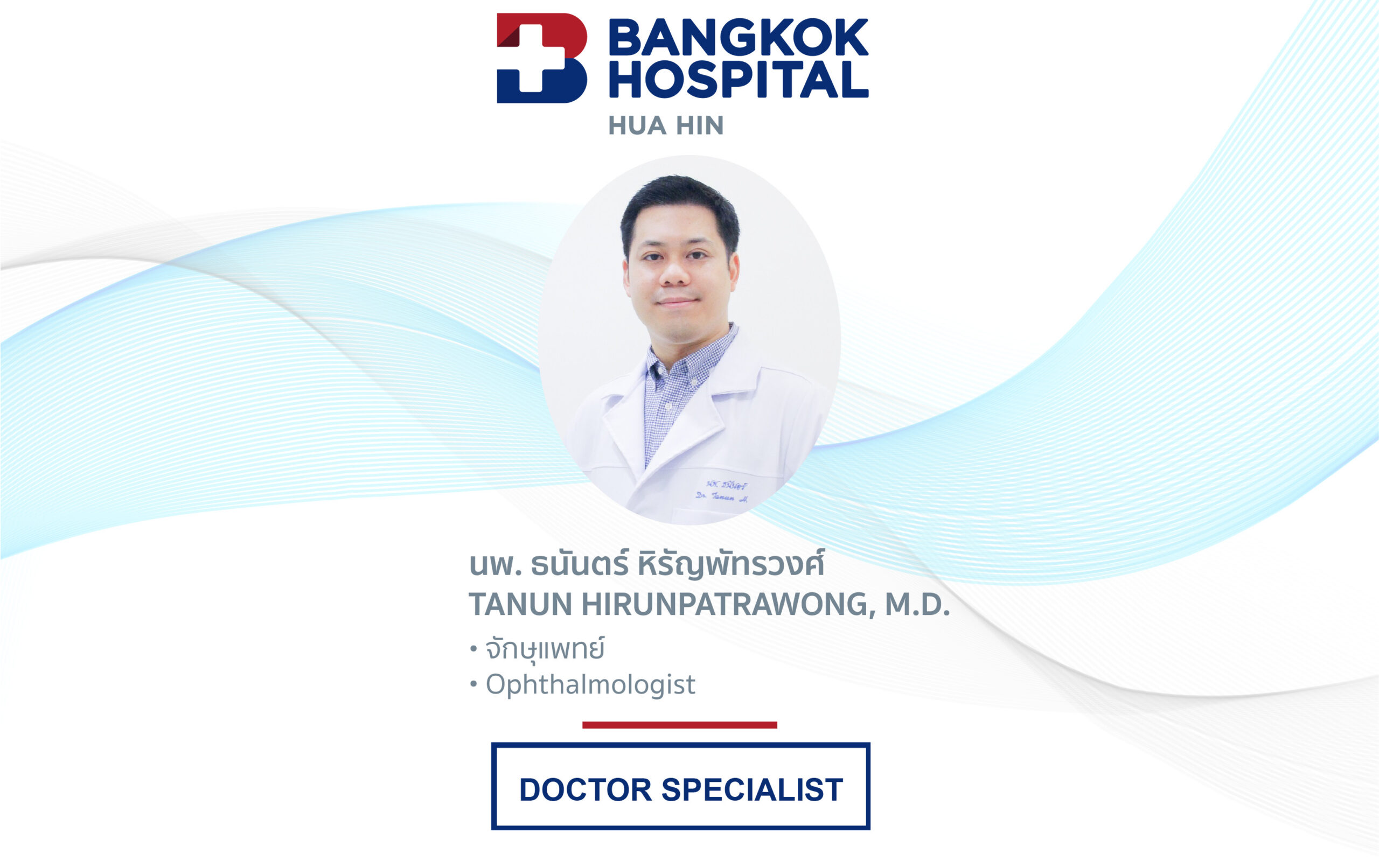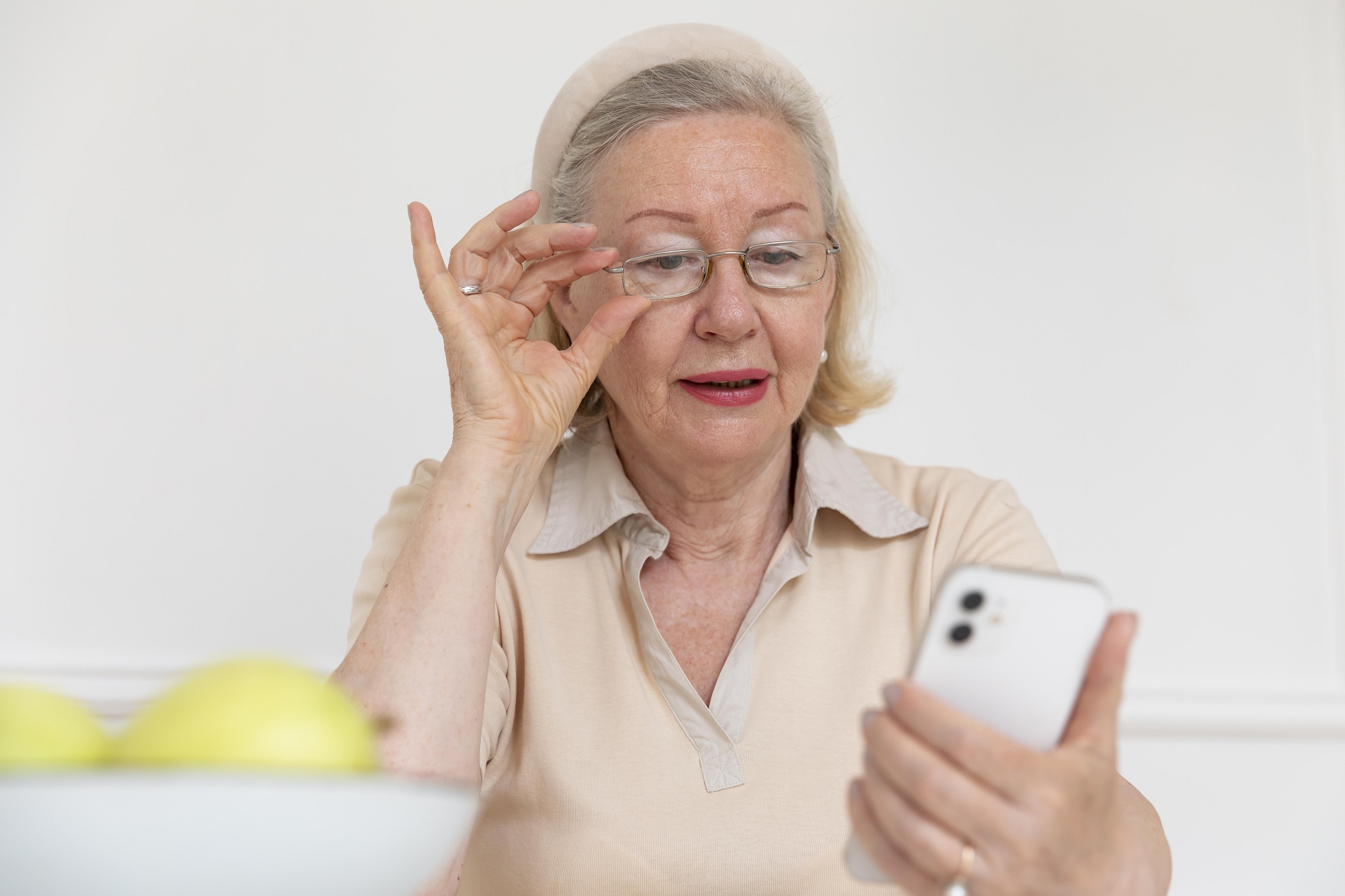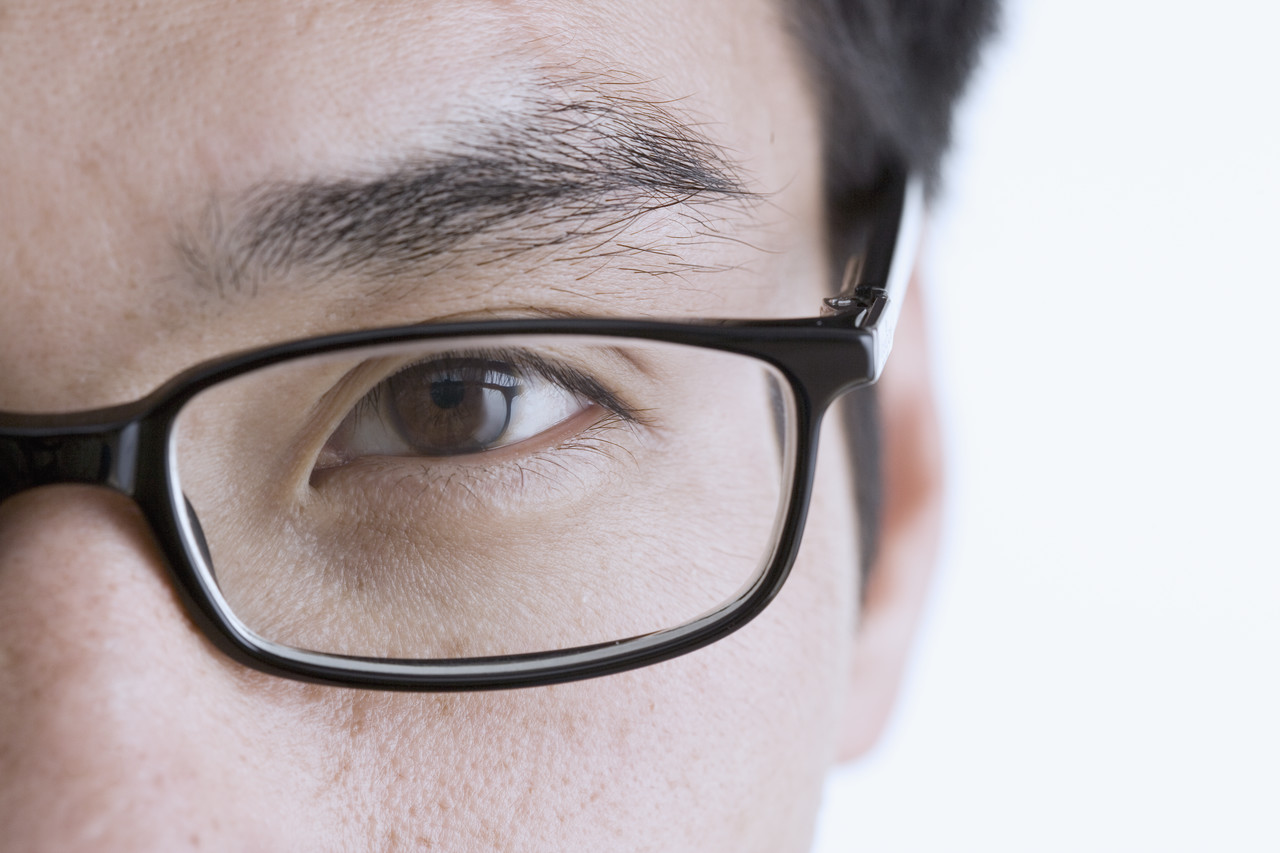Eye Diseases in the Elderly: Preventing Vision Loss through Awareness
Eye diseases are common among older adults and can have a significant impact on their vision and overall well-being. It is crucial to understand these conditions to take appropriate measures. Early detection of eye problems allows for timely treatment, preventing or delaying vision loss and ensuring a better quality of life.
Dr. Tanun Hirunpatrawong, an Ophthalmologist at Bangkok Hospital Hua Hin, emphasizes that eye diseases in the elderly are often unavoidable due to natural changes and degeneration associated with aging. These conditions are commonly caused by age-related deterioration of the visual system and can also be influenced by factors like diabetes, high blood pressure, thyroid disorders, medication usage, and stress.
 The most common eye diseases among the elderly include:
Cataracts are the most common eye condition found in the elderly. It occurs when proteins in the eye lens accumulate, causing the lens to become cloudy and rigid. This leads to blurry vision, shadows, and a hazy appearance. Cataracts can gradually worsen and affect daily activities. Cataract surgery is the recommended treatment option to restore vision and improve quality of life.
Glaucoma is characterized by a progressive damage to the optic nerve, often caused by high intraocular pressure. In most cases, it develops slowly without noticeable symptoms. However, acute glaucoma can cause eye pain, blurred vision, headaches, nausea, and vomiting. Regular screenings and early detection are crucial to prevent permanent vision loss.
Macular Degeneration affects the central portion of the retina, leading to blurred or distorted vision, blind spots, or a shadowy appearance in the center of the visual field. This condition worsens gradually and may result in significant vision loss. While there is no cure, managing symptoms through regular eye exams and lifestyle adjustments can help slow down its progression.
The most common eye diseases among the elderly include:
Cataracts are the most common eye condition found in the elderly. It occurs when proteins in the eye lens accumulate, causing the lens to become cloudy and rigid. This leads to blurry vision, shadows, and a hazy appearance. Cataracts can gradually worsen and affect daily activities. Cataract surgery is the recommended treatment option to restore vision and improve quality of life.
Glaucoma is characterized by a progressive damage to the optic nerve, often caused by high intraocular pressure. In most cases, it develops slowly without noticeable symptoms. However, acute glaucoma can cause eye pain, blurred vision, headaches, nausea, and vomiting. Regular screenings and early detection are crucial to prevent permanent vision loss.
Macular Degeneration affects the central portion of the retina, leading to blurred or distorted vision, blind spots, or a shadowy appearance in the center of the visual field. This condition worsens gradually and may result in significant vision loss. While there is no cure, managing symptoms through regular eye exams and lifestyle adjustments can help slow down its progression.
 To take care of eye health in the elderly:
Eye examinations: Older adults should regularly undergo eye examinations by an ophthalmologist. Typically, individuals aged 40 and above should have their eyes screened every 2 years, while those aged 60 and above should have annual examinations. However, individuals with abnormalities should follow the recommended examination schedule based on their specific conditions, such as measuring visual acuity, intraocular pressure, performing a comprehensive 360-degree examination of the angle of the eye (gonioscopy), visual field analysis, measuring the thickness of retinal nerve layers using OCT and fundus photography. It is important for patients with eye conditions to consistently follow up and monitor the results of their treatments to help delay and prevent vision loss.
To take care of eye health in the elderly:
Eye examinations: Older adults should regularly undergo eye examinations by an ophthalmologist. Typically, individuals aged 40 and above should have their eyes screened every 2 years, while those aged 60 and above should have annual examinations. However, individuals with abnormalities should follow the recommended examination schedule based on their specific conditions, such as measuring visual acuity, intraocular pressure, performing a comprehensive 360-degree examination of the angle of the eye (gonioscopy), visual field analysis, measuring the thickness of retinal nerve layers using OCT and fundus photography. It is important for patients with eye conditions to consistently follow up and monitor the results of their treatments to help delay and prevent vision loss.
 Eye care: Properly using prescription eyeglasses, artificial tears, and wearing sunglasses to protect against UV radiation, which can damage the eyes. This is especially crucial for patients with eye conditions who are undergoing medication or surgical treatments. It is essential to strictly follow the doctor’s advice to maximize the effectiveness of the treatment.
In addition to the mentioned eye conditions, dry eyes and visual fatigue are increasingly common across all age groups due to the use of electronic devices. Individuals experiencing these symptoms should consult a specialized physician for examination and guidance on proper care and lifestyle adjustments.
Overall physical health care: It is important to undergo regular health check-ups, engage in regular exercise, consume a diet rich in nutrients beneficial for eye health such as vitamins A, C, E, and antioxidants, and control conditions like diabetes and high blood pressure to maintain optimal health.
Eye care: Properly using prescription eyeglasses, artificial tears, and wearing sunglasses to protect against UV radiation, which can damage the eyes. This is especially crucial for patients with eye conditions who are undergoing medication or surgical treatments. It is essential to strictly follow the doctor’s advice to maximize the effectiveness of the treatment.
In addition to the mentioned eye conditions, dry eyes and visual fatigue are increasingly common across all age groups due to the use of electronic devices. Individuals experiencing these symptoms should consult a specialized physician for examination and guidance on proper care and lifestyle adjustments.
Overall physical health care: It is important to undergo regular health check-ups, engage in regular exercise, consume a diet rich in nutrients beneficial for eye health such as vitamins A, C, E, and antioxidants, and control conditions like diabetes and high blood pressure to maintain optimal health.
 “Eye diseases in the elderly are common and can directly affect their quality of life. Therefore, taking care of the eye health of the elderly is crucial. The patients themselves, as well as their family members or caregivers, should follow the doctor’s recommendations for regular examinations, diagnosis, and appropriate treatment of eye diseases. Although many eye diseases cannot be cured completely, they are controllable or preventable. Early detection and receiving appropriate treatment are important to enable the elderly to lead a happy and improved quality of life.”
**************************************************************************
For more information and booking an appointment, please contact :
Tel. 032-616-800 Call Center, Bangkok Hospital Hua Hin
Tel. 032-616-880 Out-Patient Department / Ophthalmology (8.00 – 17.00 hrs.)
News & Promotion >> Line ID : @bangkokhuahin
“Eye diseases in the elderly are common and can directly affect their quality of life. Therefore, taking care of the eye health of the elderly is crucial. The patients themselves, as well as their family members or caregivers, should follow the doctor’s recommendations for regular examinations, diagnosis, and appropriate treatment of eye diseases. Although many eye diseases cannot be cured completely, they are controllable or preventable. Early detection and receiving appropriate treatment are important to enable the elderly to lead a happy and improved quality of life.”
**************************************************************************
For more information and booking an appointment, please contact :
Tel. 032-616-800 Call Center, Bangkok Hospital Hua Hin
Tel. 032-616-880 Out-Patient Department / Ophthalmology (8.00 – 17.00 hrs.)
News & Promotion >> Line ID : @bangkokhuahin
 The most common eye diseases among the elderly include:
Cataracts are the most common eye condition found in the elderly. It occurs when proteins in the eye lens accumulate, causing the lens to become cloudy and rigid. This leads to blurry vision, shadows, and a hazy appearance. Cataracts can gradually worsen and affect daily activities. Cataract surgery is the recommended treatment option to restore vision and improve quality of life.
Glaucoma is characterized by a progressive damage to the optic nerve, often caused by high intraocular pressure. In most cases, it develops slowly without noticeable symptoms. However, acute glaucoma can cause eye pain, blurred vision, headaches, nausea, and vomiting. Regular screenings and early detection are crucial to prevent permanent vision loss.
Macular Degeneration affects the central portion of the retina, leading to blurred or distorted vision, blind spots, or a shadowy appearance in the center of the visual field. This condition worsens gradually and may result in significant vision loss. While there is no cure, managing symptoms through regular eye exams and lifestyle adjustments can help slow down its progression.
The most common eye diseases among the elderly include:
Cataracts are the most common eye condition found in the elderly. It occurs when proteins in the eye lens accumulate, causing the lens to become cloudy and rigid. This leads to blurry vision, shadows, and a hazy appearance. Cataracts can gradually worsen and affect daily activities. Cataract surgery is the recommended treatment option to restore vision and improve quality of life.
Glaucoma is characterized by a progressive damage to the optic nerve, often caused by high intraocular pressure. In most cases, it develops slowly without noticeable symptoms. However, acute glaucoma can cause eye pain, blurred vision, headaches, nausea, and vomiting. Regular screenings and early detection are crucial to prevent permanent vision loss.
Macular Degeneration affects the central portion of the retina, leading to blurred or distorted vision, blind spots, or a shadowy appearance in the center of the visual field. This condition worsens gradually and may result in significant vision loss. While there is no cure, managing symptoms through regular eye exams and lifestyle adjustments can help slow down its progression.
 To take care of eye health in the elderly:
Eye examinations: Older adults should regularly undergo eye examinations by an ophthalmologist. Typically, individuals aged 40 and above should have their eyes screened every 2 years, while those aged 60 and above should have annual examinations. However, individuals with abnormalities should follow the recommended examination schedule based on their specific conditions, such as measuring visual acuity, intraocular pressure, performing a comprehensive 360-degree examination of the angle of the eye (gonioscopy), visual field analysis, measuring the thickness of retinal nerve layers using OCT and fundus photography. It is important for patients with eye conditions to consistently follow up and monitor the results of their treatments to help delay and prevent vision loss.
To take care of eye health in the elderly:
Eye examinations: Older adults should regularly undergo eye examinations by an ophthalmologist. Typically, individuals aged 40 and above should have their eyes screened every 2 years, while those aged 60 and above should have annual examinations. However, individuals with abnormalities should follow the recommended examination schedule based on their specific conditions, such as measuring visual acuity, intraocular pressure, performing a comprehensive 360-degree examination of the angle of the eye (gonioscopy), visual field analysis, measuring the thickness of retinal nerve layers using OCT and fundus photography. It is important for patients with eye conditions to consistently follow up and monitor the results of their treatments to help delay and prevent vision loss.
 Eye care: Properly using prescription eyeglasses, artificial tears, and wearing sunglasses to protect against UV radiation, which can damage the eyes. This is especially crucial for patients with eye conditions who are undergoing medication or surgical treatments. It is essential to strictly follow the doctor’s advice to maximize the effectiveness of the treatment.
In addition to the mentioned eye conditions, dry eyes and visual fatigue are increasingly common across all age groups due to the use of electronic devices. Individuals experiencing these symptoms should consult a specialized physician for examination and guidance on proper care and lifestyle adjustments.
Overall physical health care: It is important to undergo regular health check-ups, engage in regular exercise, consume a diet rich in nutrients beneficial for eye health such as vitamins A, C, E, and antioxidants, and control conditions like diabetes and high blood pressure to maintain optimal health.
Eye care: Properly using prescription eyeglasses, artificial tears, and wearing sunglasses to protect against UV radiation, which can damage the eyes. This is especially crucial for patients with eye conditions who are undergoing medication or surgical treatments. It is essential to strictly follow the doctor’s advice to maximize the effectiveness of the treatment.
In addition to the mentioned eye conditions, dry eyes and visual fatigue are increasingly common across all age groups due to the use of electronic devices. Individuals experiencing these symptoms should consult a specialized physician for examination and guidance on proper care and lifestyle adjustments.
Overall physical health care: It is important to undergo regular health check-ups, engage in regular exercise, consume a diet rich in nutrients beneficial for eye health such as vitamins A, C, E, and antioxidants, and control conditions like diabetes and high blood pressure to maintain optimal health.
 “Eye diseases in the elderly are common and can directly affect their quality of life. Therefore, taking care of the eye health of the elderly is crucial. The patients themselves, as well as their family members or caregivers, should follow the doctor’s recommendations for regular examinations, diagnosis, and appropriate treatment of eye diseases. Although many eye diseases cannot be cured completely, they are controllable or preventable. Early detection and receiving appropriate treatment are important to enable the elderly to lead a happy and improved quality of life.”
**************************************************************************
For more information and booking an appointment, please contact :
Tel. 032-616-800 Call Center, Bangkok Hospital Hua Hin
Tel. 032-616-880 Out-Patient Department / Ophthalmology (8.00 – 17.00 hrs.)
News & Promotion >> Line ID : @bangkokhuahin
“Eye diseases in the elderly are common and can directly affect their quality of life. Therefore, taking care of the eye health of the elderly is crucial. The patients themselves, as well as their family members or caregivers, should follow the doctor’s recommendations for regular examinations, diagnosis, and appropriate treatment of eye diseases. Although many eye diseases cannot be cured completely, they are controllable or preventable. Early detection and receiving appropriate treatment are important to enable the elderly to lead a happy and improved quality of life.”
**************************************************************************
For more information and booking an appointment, please contact :
Tel. 032-616-800 Call Center, Bangkok Hospital Hua Hin
Tel. 032-616-880 Out-Patient Department / Ophthalmology (8.00 – 17.00 hrs.)
News & Promotion >> Line ID : @bangkokhuahin